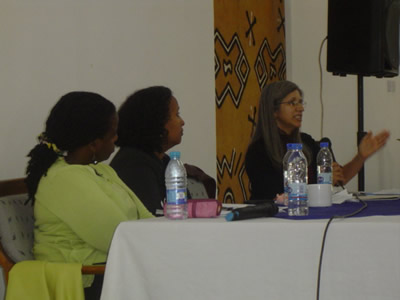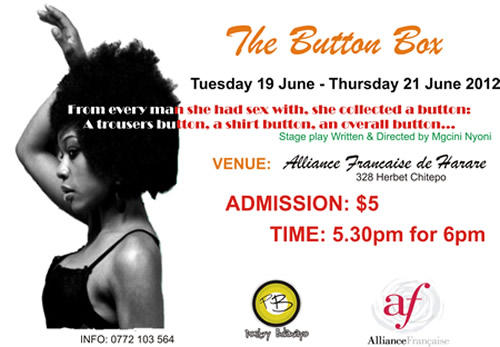No! To a curfew on women in Zimbabwe
Friday, July 27th, 2012 by Zanele ManhengaI think we are really regressing as a nation sometimes, what’s with men lobbying for women to be indoors by six o’clock? We cannot go back to the medieval era when women like children were meant to be seen only and not heard. Giving women a curfew is meant to alleviate prostitution they say. Bakers Inn will cease to bake bread the day the bread does not have consumers. The same way prostitution will end when men stop consuming the female product. If this is passed as a law it is going to be disastrous for women like me whose industry strives at night. I am a musician and performer who will be jobless. What other option of work will I have for a job? If the majority of women whom I know work long hours in offices have to be home by six and have no husbands or any other help to make ends meet, how will they survive? Can you imagine the bulk of women jobless wanting to put food on the table for their children and other persons under their care? Women often have more people to take care of than men do, imagine the pressure that this woman will have? If she is not going to be a commercial sex worker she is going to prostitute to her husband, boyfriend, lover or any other man in her life in the comfort of her house and not on the street corner. Prostitution by my definition is having sex in exchange for money or up keep. Putting a curfew on women will not stop prostitution. Instead it will make it rise. Prostitution is not going to be alleviated by this but is going to come to our homes as our mothers, sisters and all the female relations will sleep with men in their lives just to make him happy in hope he will leave a dollar for bread. Need I remind men out there that prostitution knows no time of the day? There are other ways prostitution can be alleviated. I don’t see how imposing a curfew on women will help.











